Four Arrested In Azerbaijan For Shooting Anti-Iran Lawmaker
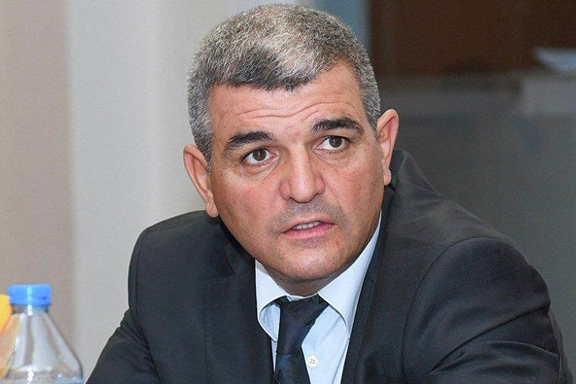
Azerbaijan Republic has arrested four people in connection with the attempted assassination of a lawmaker who was shot and wounded last week, an interior ministry spokesman said on Monday.

Azerbaijan Republic has arrested four people in connection with the attempted assassination of a lawmaker who was shot and wounded last week, an interior ministry spokesman said on Monday.
Fazil Mustafa, a lawmaker who had been strongly critical of Azerbaijan's neighbor Iran, has been recovering in hospital after what the state security service described as a terror attack.
Mustafa's assistant, Ajdar Aliyev, told Reuters the politician was feeling well and expected to return to his home under police guard.
Azerbaijani media wrote on Monday that "the involvement of the Islamic Republic in the attempt to kill Mustafa was confirmed."
“Azer Sarydzhanov is considered to be the direct organizer of the action and the shooter was identified as Shirinov Sabukhi,” reported Turan news.
Earlier, the spokesperson of the Azerbaijani Ministry of Foreign Affairs announced that the investigation and the preliminary results of the interrogations of the detainees show that the Islamic Republic was involved in the assassination.
According to Azerbaijani reports, the suspects visited Iran often and Sarijanov is a religious activist known as "Haji Azer" who posts speeches on YouTube.
Turan added that the attack was carried out upon the order of "Iranian special services" and with financial support from Tehran.
Last week, a number of Azerbaijani members of parliament also blamed the Islamic Republic for the shooting that targeted Mustafa.
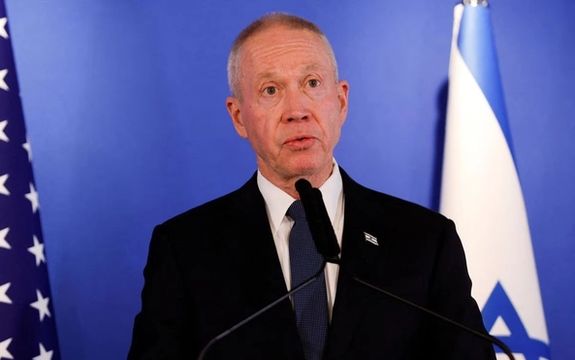
Israel's Defense Minister Yoav Gallant, who Prime Minister Benjamin Netanyahu tried to dismiss last week, has warned against Iranian interference in Palestinian areas.
"We will not allow the Iranians and Hezbollah to harm us. We have not allowed it in the past, we won’t allow it now, or anytime in the future," Gallant said during the visit to an army brigade in the West Bank.
The statement came as tensions increased last week with three Israeli air and missile strikes on Iranian bases in Syria, followed by warnings of retaliation by Tehran. Iran admitted that two of its officers were killed in the attack, leading to suspicions that it wanted to lay the ground for a possible counterattack.
Iran's government spokesman, Ali Bahadori-Jahromi, tweeted Sunday that Israel's "terrorist acts will not remain unanswered."
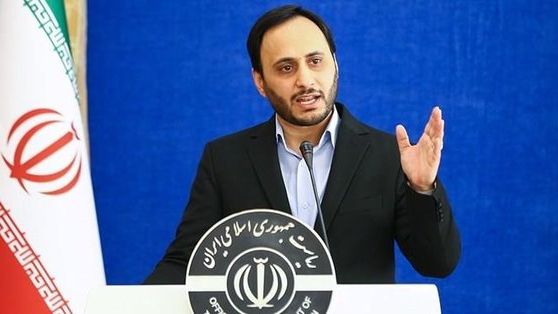
An unidentified aircraft that tried to enter Israel from Syria on Sunday was shot down by the air force, but the government has not yet officially identified it as an Iranian aircraft, most probably a drone.
Iranian officials and government media remained silent on the aircraft incident on Monday, with some newspapers and websites simply reporting the incident and unconfirmed reports that the Israeli government believes the intruding aircraft was Iranian.
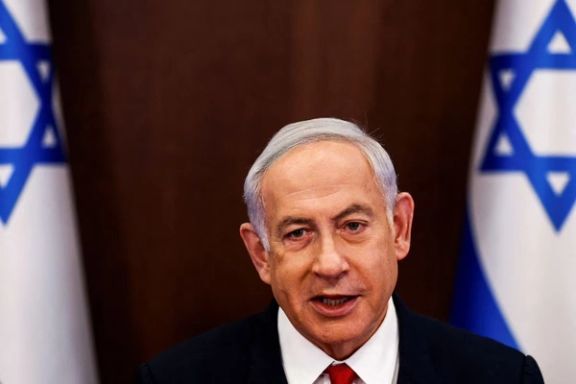
Netanyahu announced Gallant's dismissal a week ago after he spoke out against the pace of the government's hotly contested judicial reforms.
The announcement triggered foreign alarm and unprecedented street protest, and Gallant never received a formal dismissal letter from Netanyahu.
Netanyahu's religious-nationalist coalition government has since moved to pause the judicial reforms.
Gallant was briefed during his visit on a probe into a Palestinian motorist who the Israeli military said it shot on Saturday after he rammed his car into a group of soldiers in the West Bank.
Israeli-Palestinian tensions are simmering after months of violence in areas of Jerusalem and the West Bank. Tensions are also simmering with Syria, Iran and with Iran-backed armed group Hezbollah.
"All our fronts are tense. The Iranians are extending their outreach to (the West Bank) and Gaza and are attempting to entrench themselves in Syria and Lebanon," said Gallant.
Iran’s Revolutionary Guard (IRGC) called on Palestinians last week to take advantage of recent protests in Israel to destabilize the country. IRGC spokesman Brigadier General Ramezan Sharif said on Tuesday that “the occupied territories are the scene of confrontation of a movement within the Zionist regime that wants to stand against the totalitarianism of another wing.”
“This is a golden opportunity for the Palestinian fighters to take advantage of the situation,” he added.
Iranian government media have been trumpeting “the end of Israel” resulting from internal disagreements.
Gen. Sharif was quoted by local media on March 29 as saying that Jerusalem's "liberation" is near, "thanks to the Palestinian struggle", and to Iran's Supreme Leader Ali Khamenei who "is the flag-bearer" of the fight against Israel. He also said that IRGC Gen. Qassem Soleimani played an important role in driving the "resistance". Soleimani was targeted and killed by the United States in Baghdad in January 2020.
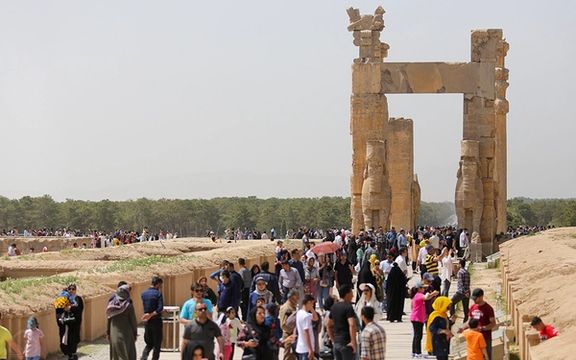
Iran’s Director General of National and World Heritage Sites says Persepolis was the most visited world heritage site during the New Year holiday or Nowruz.
Reza Sameh told IRNA on Monday that during Nowruz holidays, the world heritage site of Persepolis with 261,049 tourists had the most visitors.
According to him, it was followed by Imam Square (formerly Shah Square) in Esfahan, and Fin Bathhouse in Kashan.
Back in October, the Islamic Republic banned people from visiting the Pasargadae and Persepolis, ancient sites dating back to Achaemenid Empire on Cyrus the Great Day, in fear of antigovernment protests.
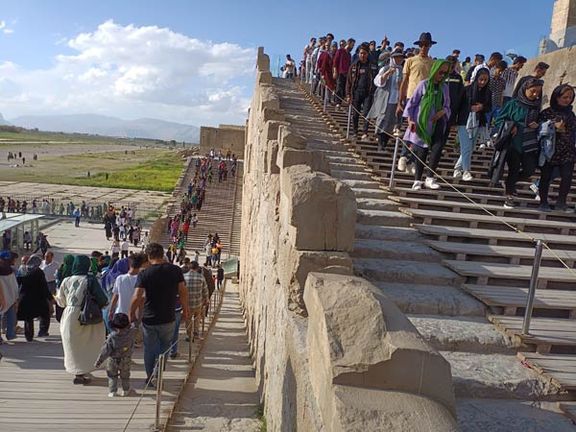
October 29 is considered by some historians as the death anniversary of Cyrus the Great, the founder of the first Persian empire the Achaemenids.
To commemorate the king, every year many Iranians visit the Tomb of Cyrus on October 29, a mausoleum located in Pasargadae archaeological site as well as Persepolis, the ceremonial capital of the Achaemenid Empire.
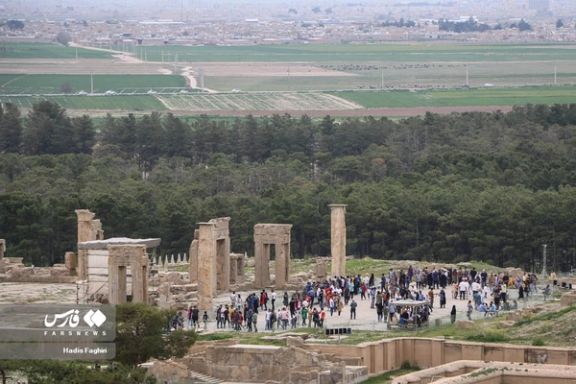
In recent years, the Islamic Republic implemented security measures and even blocked roads leading to Pasargadae and Persepolis to prevent people from visiting the ancient sites on October 29 because they are considered symbols of monarchy by the clerical regime.
The measures especially intensified since October 2016, when thousands of people gathered at the historical site and chanted antigovernment slogans such as "Iran is our homeland, Cyrus is our father."
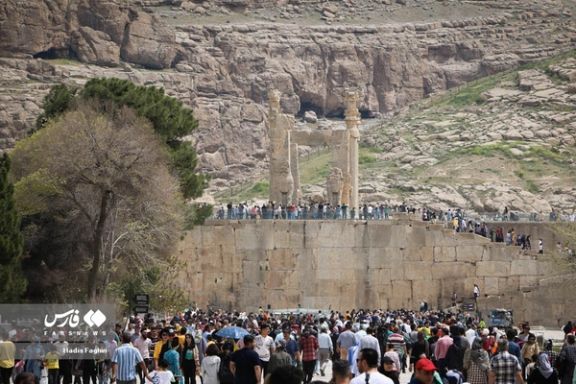

The former mayor of Tehran has said the international community's concerns are justified about the regime, by referring to a vigilante throwing yogurt at women without hijab.
Gholamhossein Karbaschi wrote in a tweet on Sunday “when there are people in the country who do not use yogurt peacefully, how the world can ensure other sensitive capabilities are used peacefully.”
The member of centrist proreform Executives of Construction Party did not explain further, but it seems he was referring to the nuclear program of the Islamic Republic, which Tehran claims to be for "peaceful purposes", but the international community is worried about intentions to build nuclear weapons secretly.
A video from the CCTV of a convenience store in Shandiz near the religious city of Mashhad went viral on social media Friday that showed a man dumping a large tub of yogurt after an argument on the head of a ‘hijabless’ woman and her mother, who was wearing a headscarf.
The man, apparently a member of the Revolutionary Guard Basij militia, had been carrying out his Islamic duty of “calling to virtue and forbidding wrong”. Local authorities said Saturday the man was arrested for disturbing public peace and insulting the women. Officials said that carrying out the duty of hijab enforcement should remain limited to verbal warnings only.
Both women were also arrested for defying hijab rules and the owner of the business was given a warning for allowing violation of the hijab law on his premises.
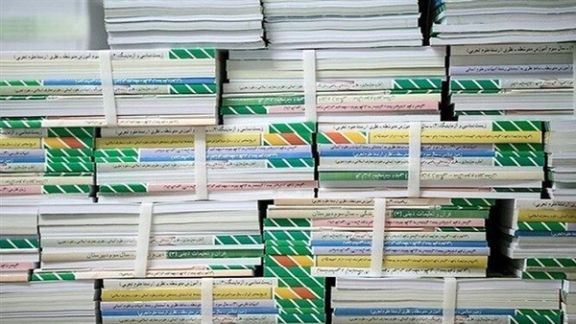
Iran’s deputy minister of education says based on the views of the Supreme Leader Ali Khamenei changes will be made in the content of foreign language textbooks.
In an interview with local media on Sunday, Ahmad Mahmoudzadeh called the decision "organizing the language schools", adding that Ali Khamenei has criticized the "content of language books" and demanded a revision.
Regarding Khamenei's criticism, he said "The conversation, pictures or anything else that is presented must be completely in conformity with the Iranian Islamic culture and customs."
Changing the content of textbooks and aligning them with regime ideology, upon Khamenei orders, has been implemented in the past few years, but this is the first time such changes will be applied to textbooks in private language schools.
Mahmoudzadeh also stated that based on Khamenei's preference, the "monopoly of the English language" in the curriculum of schools is supposed to be broken.
In recent years, Khamenei has taken a position against teaching English in Iranian schools.
In 2016, Ali Khamenei harshly criticized the promotion of learning English in Iranian educational institutions. "Now, we have reached a point where teaching the English language is extended to kindergartens and daycares, as well," he retorted.
Immediately after Khamenei's remarks, the Ministry of Education banned English teaching in primary schools.
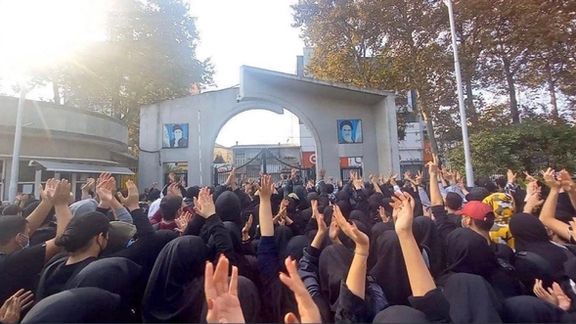
Iran’s health and education ministries say their educational centers will not be providing services to students who do not observe the mandatory hijab.
In a message to congratulate the opening of universities in the new Iranian year on Monday, Deputy Health Minister Abbas Shirojan thanked the students who comply with dress code, and announced the universities of the health ministry will not provide services to students without hijab.
Meanwhile, the education ministry in a separate statement announced that women who do not comply with the compulsory hijab will not be allowed to attend classes.
During the nationwide protests in Iran following the death in custody of Mahsa Amini, universities have been the hotbed of protests with hundreds of students were arrested, in addition to targeted poisoning attacks on girls’ schools.
As the regime fights a losing battle against the wave of women participating in a nationwide hijab rebellion, hardliner regime supporters vow more strict measures.
In recent days, dozens of shops and malls where Iranian women continue to flout the regime’s mandatory hijab rules have been closed down across the country with dozens more women arrested.
In the past four decades women generally demonstrated their opposition to compulsory hijab by making their headscarves smaller.
Defiance of hijab rules as a form of civil disobedience ha grown across the country after the death the 22-year-old Mahsa Amini in custody of morality police in mid-September.